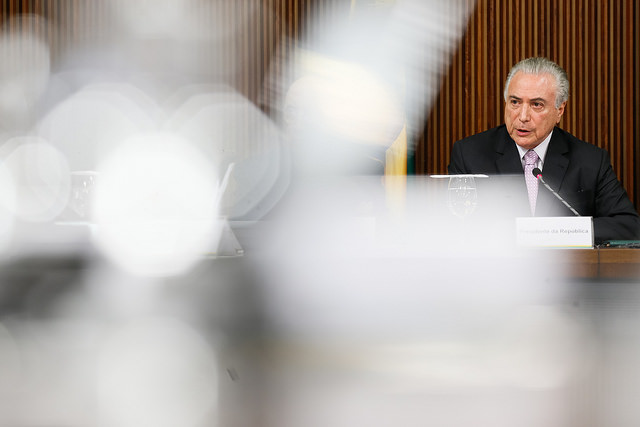The political crisis in Brazil does not seem to come to an end. President Michel Temer, whom some sectors consider the man behind the scenes, the one who moved the threads of the traumatic impeachment to Dilma Rousseff, runs the risk of being swept away by the tsunami of corruption. Accused of abuse of political and economic power, when he was part of the Rousseff-Temer formula in the 2014 elections, he is now considered the president of a cornered government. Up to now, he has managed to overcome all the obstacles he has had to face along the way.
The decision of the Supreme Electoral Tribunal, despite overwhelming evidence against the Rousseff-Temer formula, has favored him by supplying him more time and some oxygen. It seems to be however a Pyrrhic victory, a triumph with the bitter taste of defeat. In fact, analysts consider that the decision of the judges that absolved the controversial electoral formula was more a setback than a success. After all, he passed the exam by only one vote.
The decision of the Supreme Electoral Tribunal seems to have been dictated by political considerations, rather than by strictly legal principles. We say that the criterion that prevailed, a little more than a year after the traumatic impeachment to Rousseff, was that a ruling against President Temer would not have done any good to the country: it would have provoked the dismissal of the head of State with terrible consequences in the political and even more in the institutional ambit. In addition, a condemnation of Temer would have created a climate of distrust towards the country, at a time when the economy begins to show real signs of recovery, after two years of deep recession.
The problems are not over for Temer however. The president, who has been already investigated for attempted obstruction of justice, passive corruption and illicit association, has come out weakened from the examination of the Supreme Electoral Tribunal, and faces now the possibility of being formally denounced for corruption. His future seems to be in the hands of the Chamber of Deputies who would decide whether or not to remove him from office.
President Temer has been accused of having received large amounts of illegal money when he was part of the Rousseff-Temer formula. Among the companies mentioned, Odebrecht, OAS, Andrade Gutierrez, Camargo Correa, UTC, all appear as involved in the corruption scheme that existed in Petrobras. According to the accusation, the funds received by Rousseff-Temer gave the pro-government campaign «disproportionate advantages» against opponents in the electoral contest.
Temer’s government is stepping on eggs, and staggers to the brink of precipice since the scandal of bribes from the meat processor, JBS, erupted. The owners of the company, Joesley and Wesley Batista, signed an agreement with the court and handed over to the Attorney General’s Office the recording of a conversation with Temer. The president of the Republic, according to the recording, seems to give his endorsement to the payment of millionaire sums to Eduardo Cunha, former president of the Chamber of Deputies; all, in exchange for his silence.
The political future of President Temer and the institutional stability of Brazil hang from a thread. In fact, Temer not only faces the possibility that the Attorney General of the Republic presents a formal complaint against him, something that had never happened in the history of the southern colossus, but he also runs the risk of breaking definitively the Alliance with the Party of Brazilian Social Democracy. It would be the debacle for him and the beginning of a turbulent political stage for the country.
The Temer case, no matter how it ends, must necessarily open a political debate in Brazil and, in general, invite reflection in Latin America, a continent where corruption has established itself and become a cancer that is consuming the moral and ethical foundations of nations.
That which is happening today in Brazil and in Venezuela, geographical opposites of South America; which happened just yesterday in Cristina Fernández’s Argentina; or which is happening today in Nicaragua, seem to be only the tip of the Iceberg. The question is: will the new generations, the new leaders, take the leap and start an ethical revolution in the politics of their countries?
Photo Credits: Michel Temer


